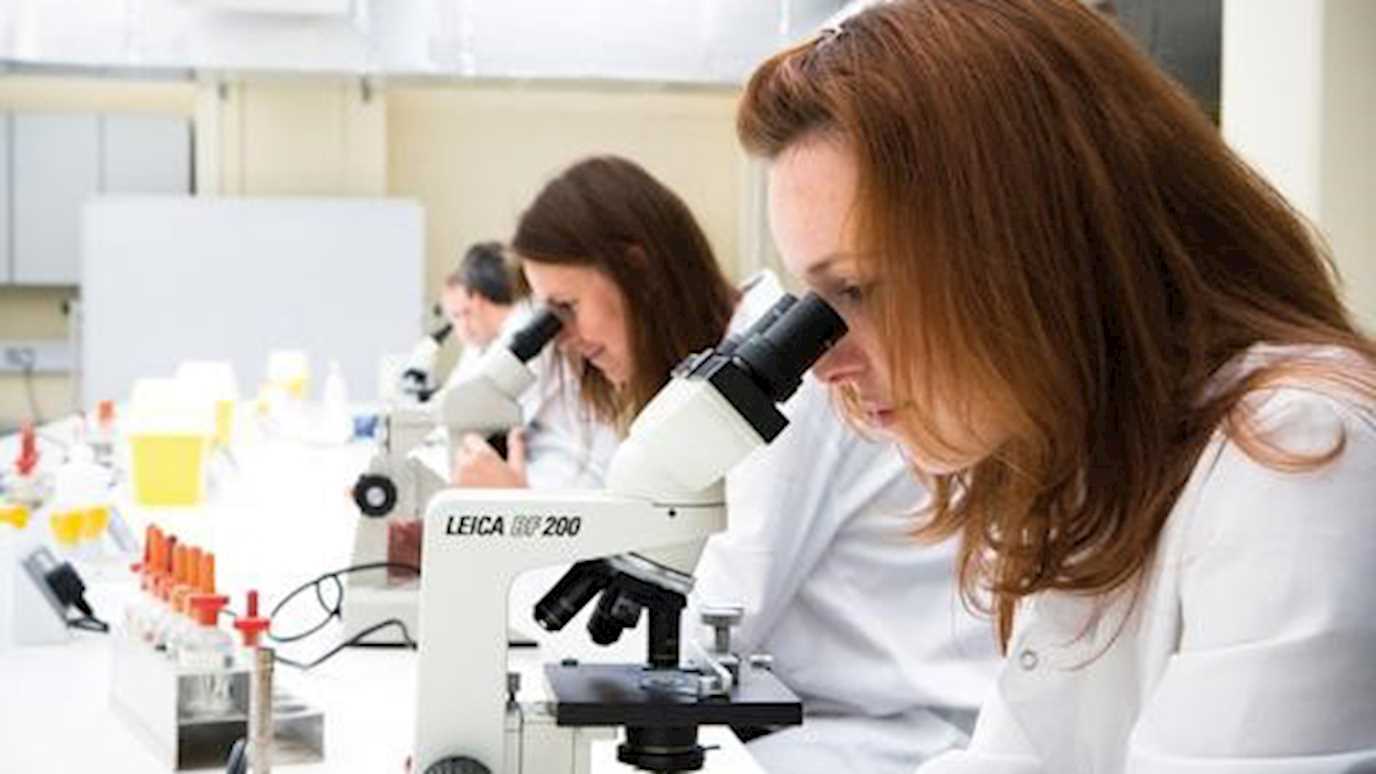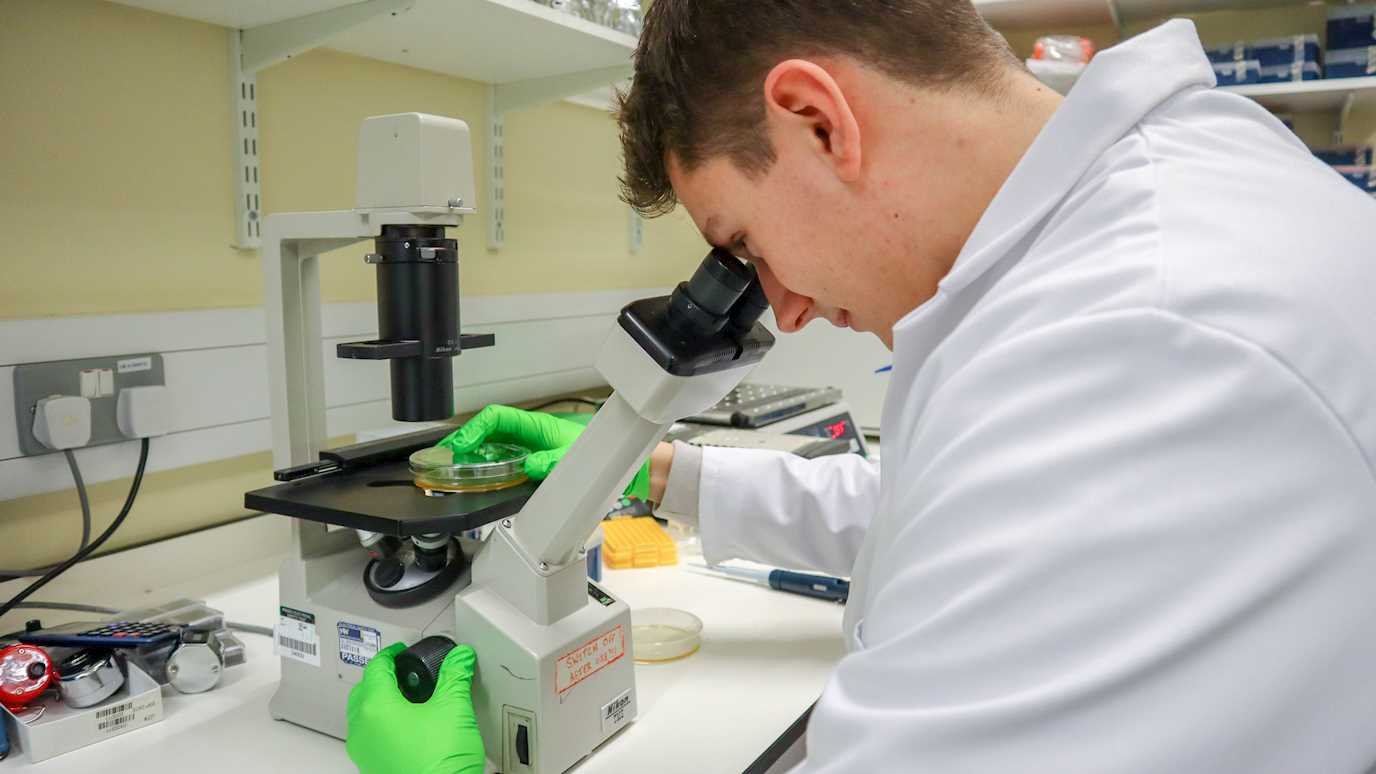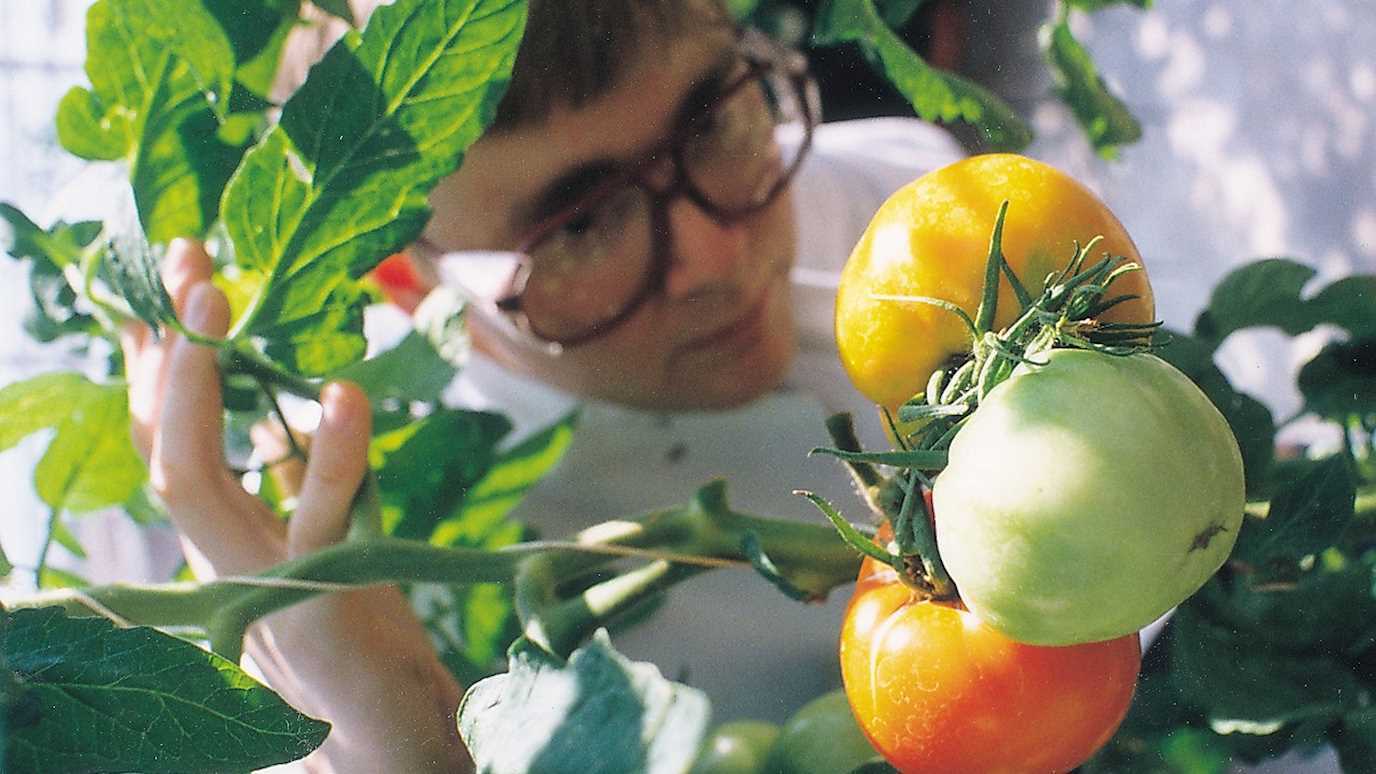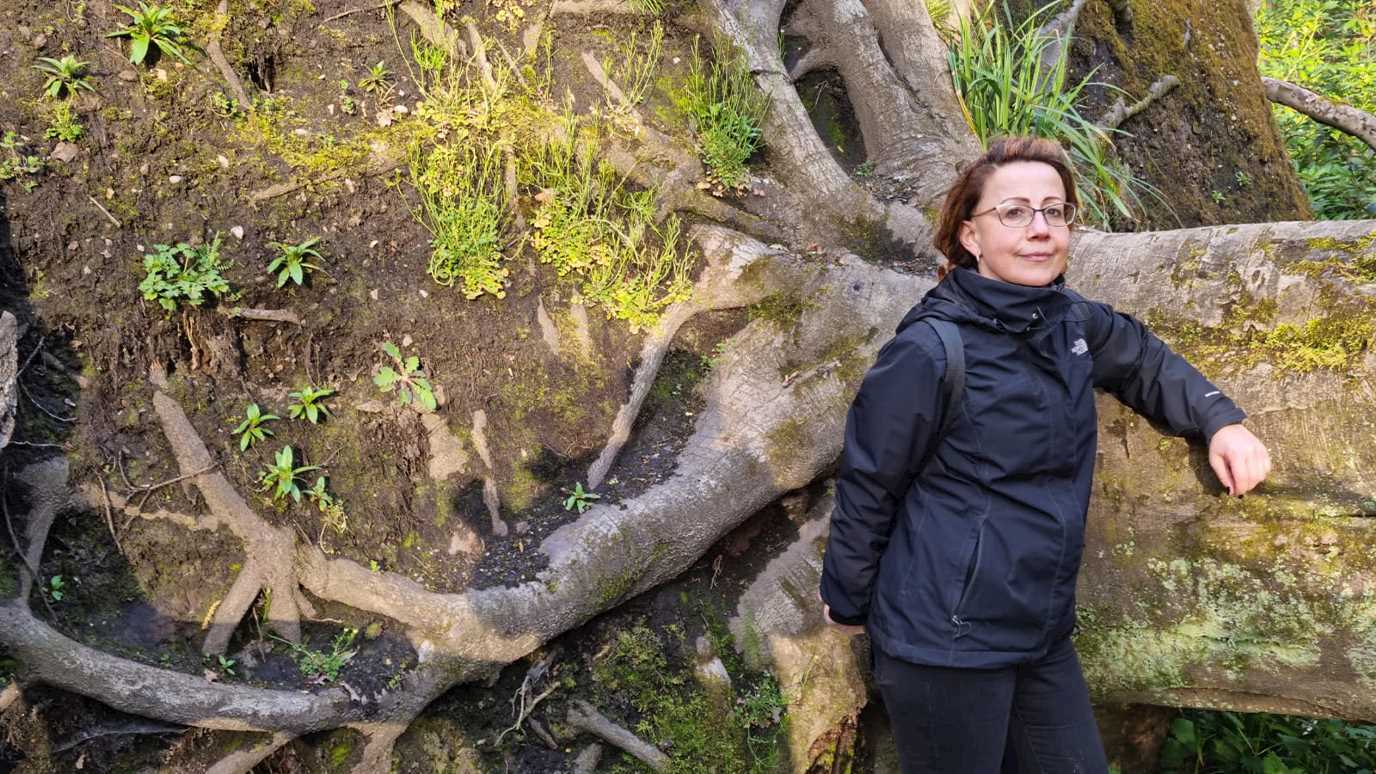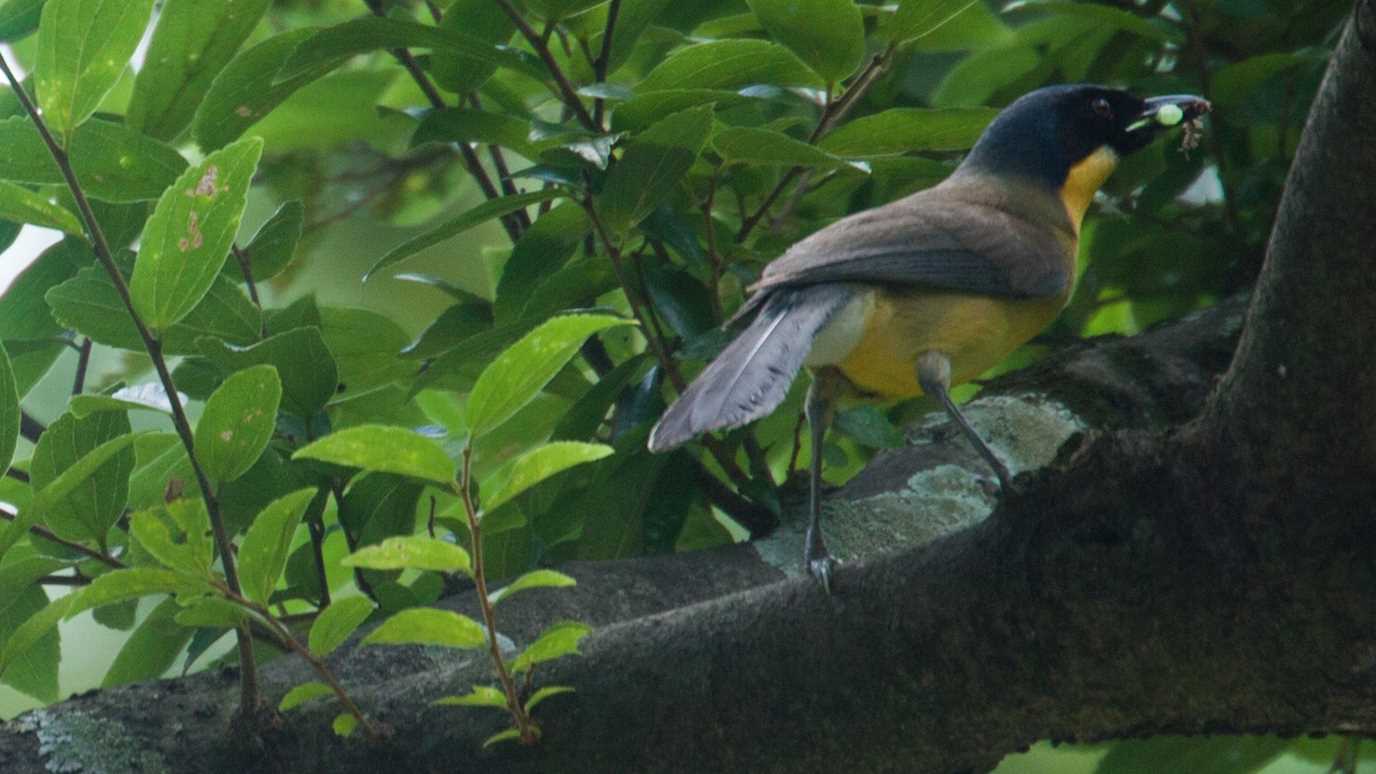New research led by academics at Royal Holloway, University of London, has revealed how the moisture-resistance of bird eggshells has evolved to thrive in different environments.
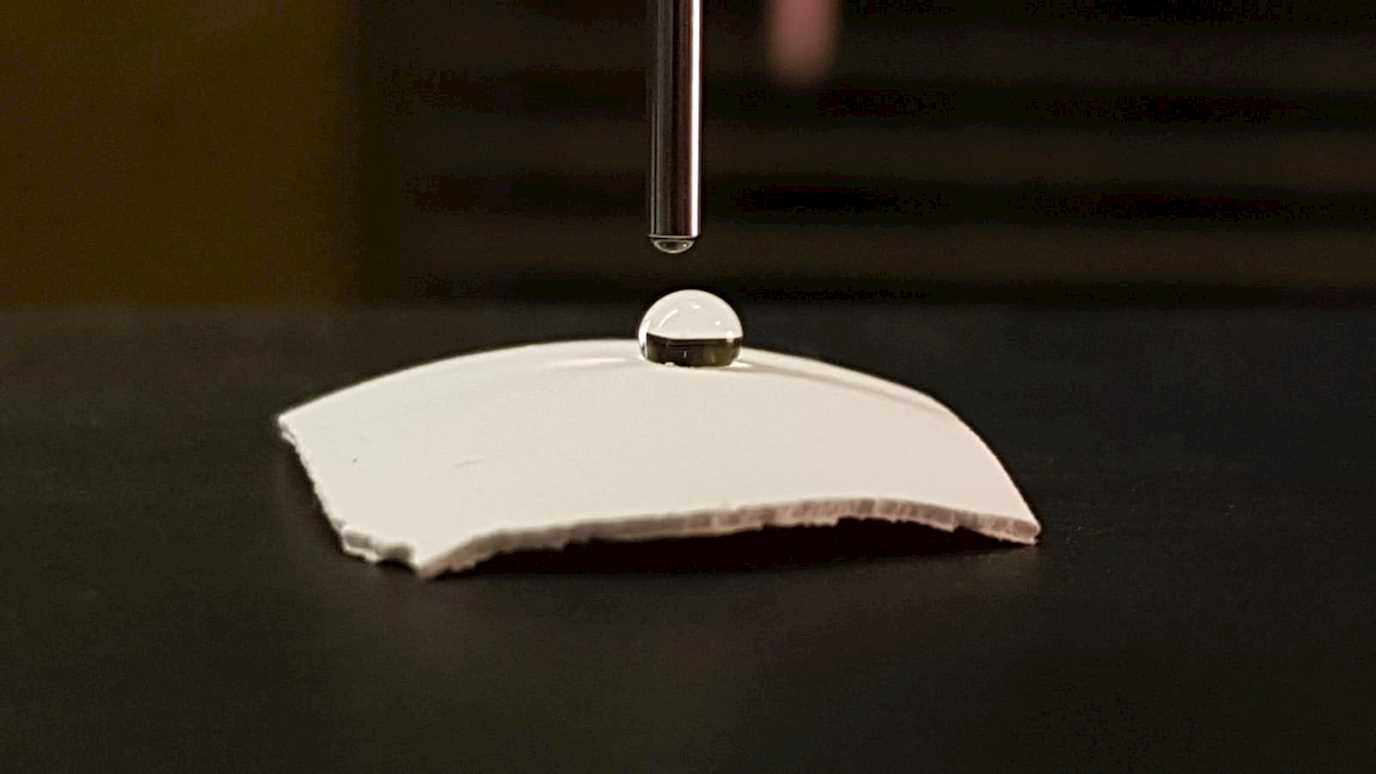
Hydrophobic water droplet on pelican eggshell
This suggests that bird populations nesting in environments prone to climate change may be at risk when weather conditions undergo a period of intense and rapid change that does not suit how the bird’s eggshells have evolved.
The study, in collaboration with the Open University, the University of Surrey, the Natural History Museum and the Western Foundation of Vertebrate Zoology reviewed the levels of water resistance, or ‘wettability’, of eggshell surfaces across 98 bird families. Researchers found that the level of water-resistance is dictated by the egg’s need to retain heat, regulate gas exchange and prevent microbes sticking to the shell, which can lead to infection.
The study ‘Ecological drivers of eggshell wettability in birds’, funded by The Leverhulme Trust, revealed the level of surface water resistance proved an essential factor in surviving a variety of habitats based on exposure to heat, humidity and infection. Of the 441 bird species analysed, 89% had hydrophobic eggshells, with 11% having hydrophilic eggshells.
Hydrophobic shells – shells that repel water – were found to repel water, trapping any microbes within almost spherical water droplets. These traits were favoured in warmer, humid environments, where the risks of water permeating the shell were greater. Budgerigars are an example species that produce highly water-repellent eggshells, as they breed in open forests, savannas and deserts after substantial rain, when there is likely to be a lot of water present in the environment.
Hydrophilic shells – shells that attract water – caused the test water to spread out, providing a large moist surface for microbes to grow. These characteristics were more common in species laying in open nests that are exposed to sun that dries the egg, and wind that removes heat from it.
One in ten eggs laid in the wild do not hatch. With uncertainty over how quickly eggshell properties can evolve, these findings highlight the significant risks posed to bird populations nesting in areas experiencing climate changes.
Lead researcher, Dr Marie Attard, of Royal Holloway’s Department of Biological Sciences, said: “As the largest analysis every conducted on eggshell wettability, our study represents a significant advancement in bird reproduction, and our understanding of selective pressures which promote the evolution of specific eggshell traits. Within this evolutionary framework, we can better assess how the function of vital eggshell traits may be impacted by current and future environmental change.
“The plasticity of eggshell traits over the short-term is likely to determine the response of bird populations to rapid and long-lasting changes in their environment, such as global climate change and habitat loss. However, we do not know if eggshell characteristics can change quickly enough in response to these external threats. Individual species will either move to more favourable breeding areas, tolerate or adapt to their changed environment, or become extinct.”










